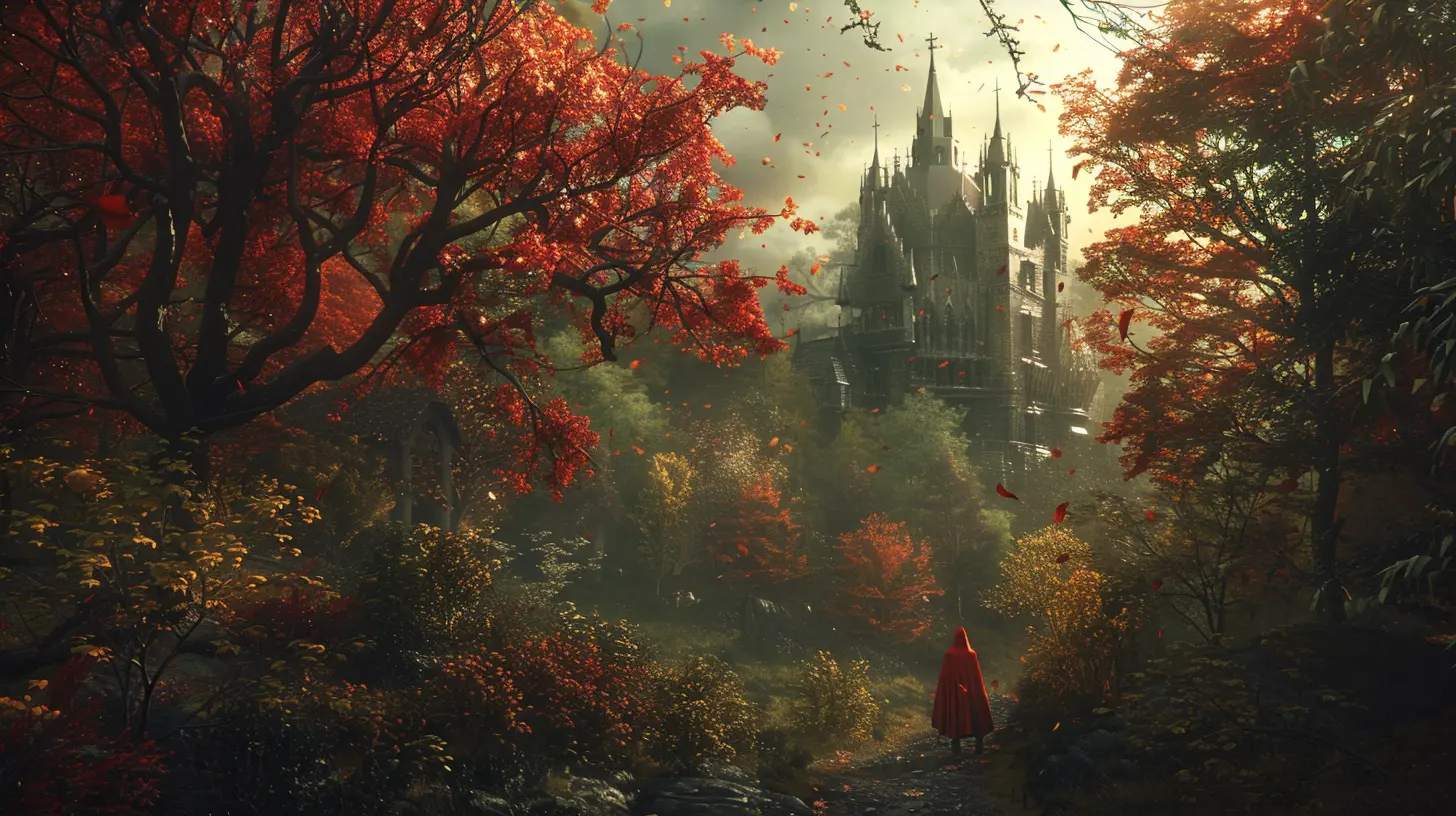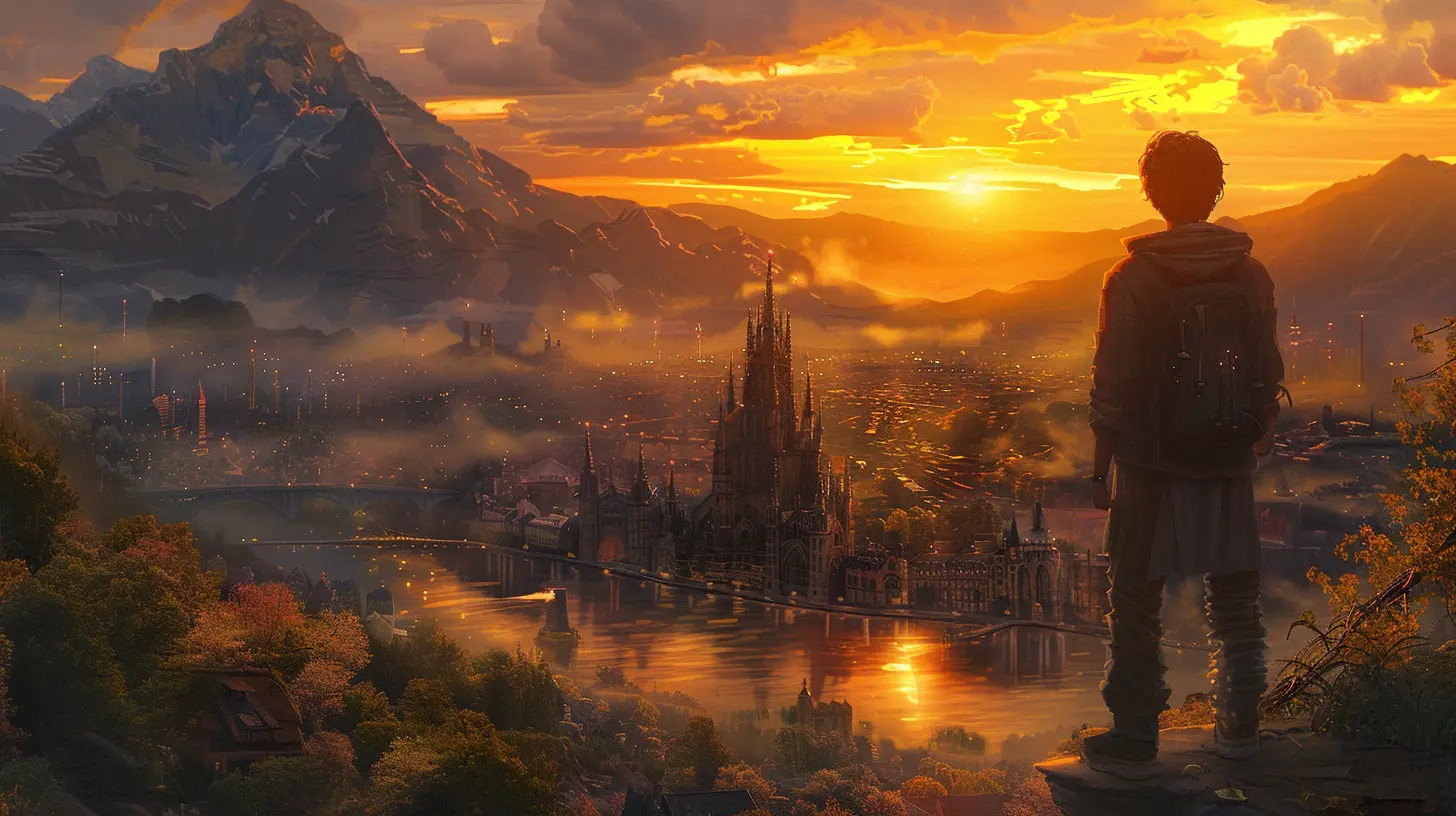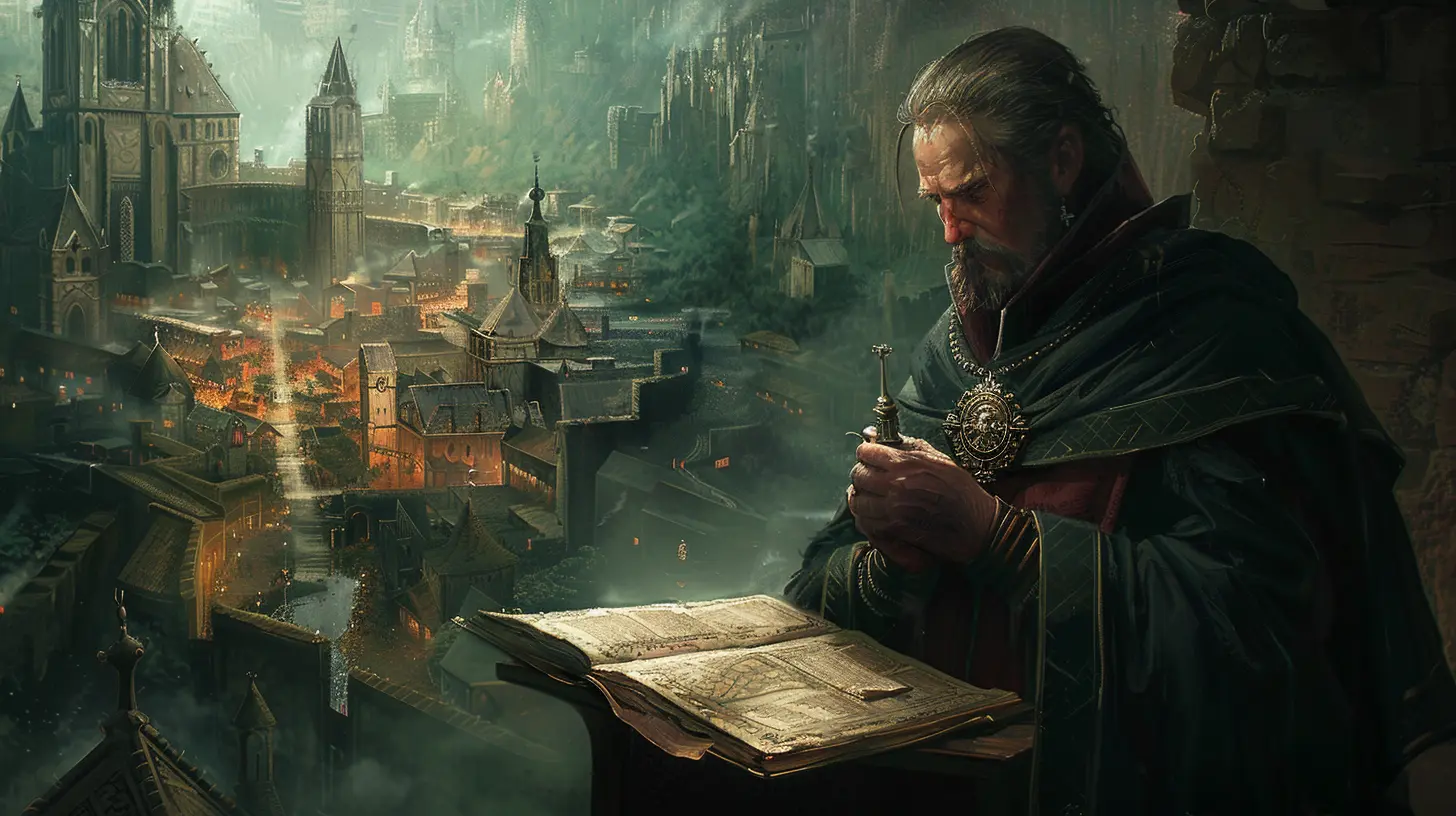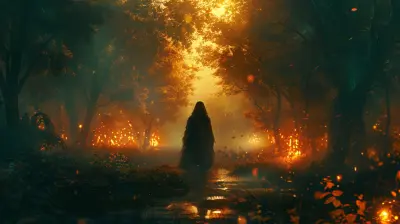How Decisions Shape Your Fate in Adventure Games
19 September 2025
Ever found yourself standing at a crossroads in a game, sweating over whether to save the villager or chase the villain? That heart-pounding moment, where one choice could change everything — yep, that's the beauty of adventure games. They throw you into a world where every decision matters, and your fate isn’t just handed to you — you craft it.
Let’s dive headfirst into the fascinating world of decision-making in adventure games. You’ll see why those seemingly small choices aren’t so small after all...
What Makes Adventure Games So Addictive?
Adventure games aren’t just about killing monsters or collecting loot. They’re about stories — living them, shaping them, and sometimes, breaking them. At their core, these games are interactive narratives. They're the choose-your-own-adventure books of the modern gaming era… only with jaw-dropping graphics and voice acting.Unlike linear games where you're just along for the ride, adventure games toss you into the driver’s seat. You’re not just playing a character — you’re becoming them. Their wins feel like yours. Their screw-ups? Also yours. Ouch.
And what’s the main mechanic that drives this genre? Decisions.
Choices Aren’t Just Black and White
You’d think that saving the princess and slaying the dragon would always be the “right” choice, right? Nah, adventure games love to throw moral curveballs. The best ones mess with your head — no obvious good or bad, only shades of gray.Take Life is Strange, for example. You're constantly asked to make deeply emotional choices. Help your friend or protect yourself? Tell the truth or lie to shield someone? Every path has consequences, and they’re rarely neat and tidy.
What’s wild is how these games mimic real life. You don’t always know if you’re doing the right thing until it explodes in your face — or blooms into something beautiful.
Branching Narratives: A Web of Consequences
Here’s where things get juicy: branching narratives. This is the magic sauce that makes adventure games replayable and irresistibly human. Every single choice you make nudges the story in a different direction.Imagine standing in a forest. Each path leads to another fork. Some loop back. Some end abruptly. Some take you to a cliffhanger you never saw coming. That’s how branching narratives work. They track your decisions and adjust the game world accordingly.
Games like The Witcher 3, Detroit: Become Human, and Until Dawn are practically masterclasses in this. A choice you made 10 hours ago? It can come back to haunt or help you. That character you spared might save your life later — or throw you under the bus. Talk about karma.
Consequence Systems: The Butterfly Effect in Games
Did you know that some games literally track your every move? Not just major decisions — we’re talking about stuff as minor as offering someone a drink or telling a white lie. These “consequence systems” make sure your actions ripple through the story like a butterfly flapping its wings across the globe.Remember Telltale’s The Walking Dead? It famously reminded you: “Clementine will remember that.” That little sentence? Chills. It’s a reminder that your words matter — and they’re coming back around, for better or worse.
So, yeah, think twice before you throw that NPC under the bus. They just might be the one holding the only key to your escape later.
Character Relationships: Friends, Foes, and Frenemies
Your relationships in adventure games are shaped by what you say and do. And just like in real life, people (even digital ones) remember how you treat them.In Mass Effect, your crewmates respond to your leadership style. Cold and all-business? They may fear you. Compassionate and loyal? They’ll follow you to the ends of the galaxy. These dynamics don’t just affect dialogue — they can shift the entire storyline.
And it makes sense, right? You act like a jerk, and people won’t help you. You show empathy, and boom — doors start opening that were once slammed shut.
Moral Dilemmas: Gaming’s Favorite Thought Experiments
Here’s where the genre really flexes its brainpower: moral dilemmas. These games force you to weigh your values. Do you sacrifice one for the many? Do you honor a promise or break it for a greater good?Papers, Please is a perfect example. You’re a border control officer, and every day you decide who gets into a fictional country. But it's not just stamps and rules — you deal with human stories. Families torn apart, people begging for mercy. Your choices affect lives. And your conscience? Yeah, it’s tested.
These moments are gut-wrenching — and powerful. They stay with you long after the game ends.
Player Agency: The Core of Immersion
Let’s be real — nothing’s more frustrating than a game that pretends you have control when you don’t. “Fake choices” are the worst. But in well-crafted adventure games, player agency is real. Your decisions reshape the entire experience.Games like Disco Elysium take this to the next level. Every conversation, every thought your character has influences how they grow. There are no “wrong” paths, just different ones. The game adapts to you, not the other way around.
It’s like being handed a canvas and a paintbrush instead of a coloring book. Freedom, baby.
Replayability: Different Choices, Fresh Experiences
Made a choice you regret? We all have. That’s why adventure games are gold when it comes to replay value. Go back, make a different call, take that other path. Suddenly, the game isn’t just slightly different — it feels brand new.Some players even treat these games like social experiments. “What happens if I always pick the evil option?” or “What if I play the pacifist route this time?” The outcomes can be wildly different, right down to who lives, who dies, and what ending you unlock.
And let’s be honest — we’ve all gone back to see how things would’ve gone if we’d just picked that other dialogue option.
Emotion Drives Engagement
This is what sets adventure games apart. Because every decision ties into the emotional heart of the story, you’re way more invested. You care about the characters. You don’t just want to survive — you want to do the right thing (whatever that means to you).That emotional connection is what makes your choices feel real. You’re not just pushing buttons. You’re making tough calls. And the weight of those moments? They hit hard.
Decision-Making as a Reflection of the Player
Here’s a deep thought: the choices you make in adventure games reveal something about you. It’s like holding up a mirror. Do you lie to protect someone? Do you sacrifice yourself for the greater good? Or maybe you always choose the most chaotic option just to see the fallout?Some people roleplay, sure. But more often than not, we instinctively pick what feels right. And in that way, adventure games become almost therapeutic. You get to test your morals in a zero-risk world. You ask yourself: Who am I when the chips are down?
Adventure Gaming Is Evolving
Thanks to continually improving technology and storytelling techniques, decision-making in adventure games is only getting deeper and smarter. AI-driven dialogue trees, next-gen emotion tracking, and real-time consequence engines are taking things to insane new heights.We’re moving toward games that don’t just react to WHAT you say — they watch HOW you say it. Your tone, your timing, your hesitation. Wild, right?
The line between player and character keeps getting blurrier. And that means your decisions are about to get even more personal... and maybe a little uncomfortable.
Final Thoughts
So, how do decisions shape your fate in adventure games? In every way imaginable. From altering storylines to defining relationships, from revealing your inner self to creating unforgettable emotional moments — your choices are the heartbeat of the journey.And that’s what makes adventure games special. They don’t just tell a story. They invite you to write your own.
So next time you're faced with a tough call in a game? Take a deep breath. Think it through. Or don’t. Sometimes, going with your gut makes the ride that much more thrilling.
Either way, remember: it's your story — own it.
all images in this post were generated using AI tools
Category:
Adventure GamesAuthor:

Leif Coleman
Discussion
rate this article
1 comments
Ximena Huffman
This article brilliantly highlights the pivotal role of decision-making in adventure games. By exploring character choices and their consequences, it emphasizes player agency and immersion, ultimately shaping unique narratives that enhance the overall gaming experience. Well done!
September 28, 2025 at 3:39 PM

Leif Coleman
Thank you! I'm glad you found the article insightful. Player agency truly transforms the adventure gaming experience.


